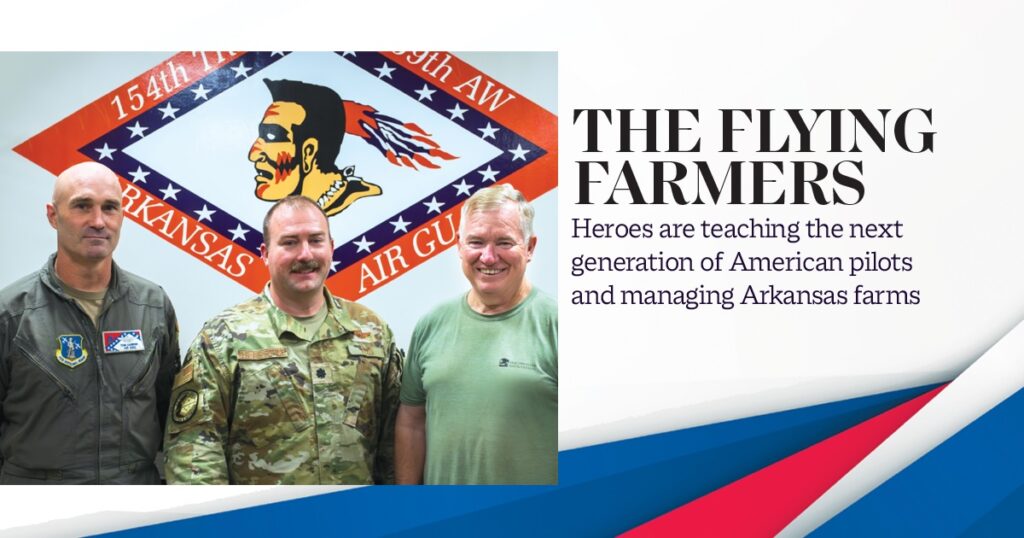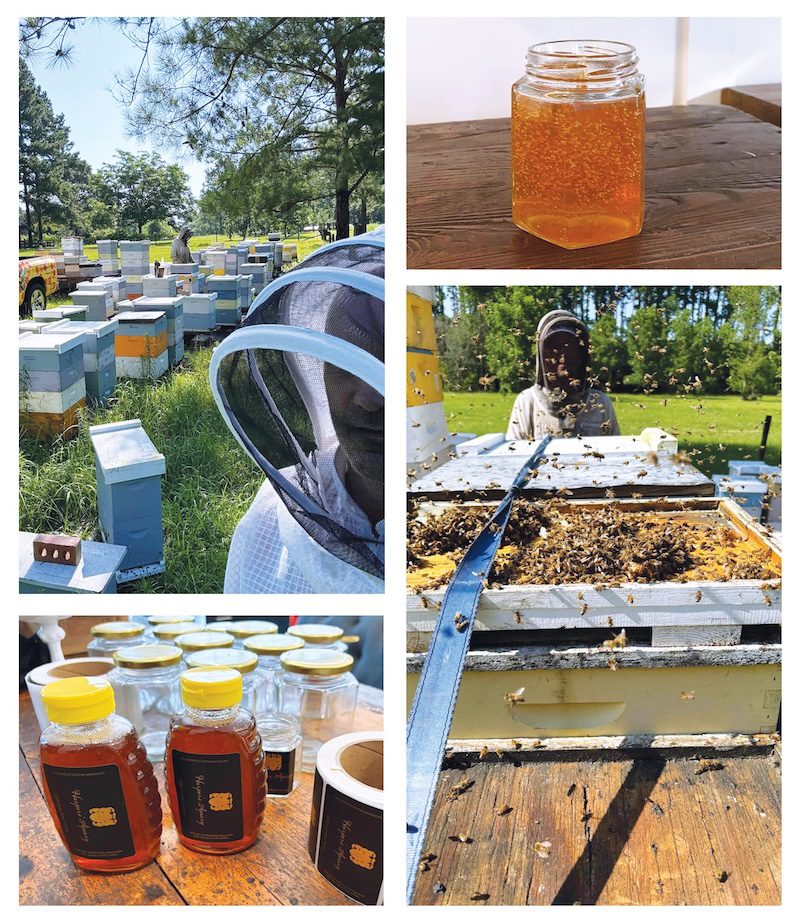30 Sep 2024 The flying farmers
By Judy Riley
There are heroes among us, going about their day-to-day business, in this case as farmers, but quietly and humbly serving and protecting us through their commitment to the Arkansas Air National Guard. They are pilots and navigators one weekend a month and a couple of weeks a year, yet livestock, goat and bee farmers by day. Lt. Col. Tom Harper and Lt. Col. Phil Moorehouse are pilot instructors, and Lt. Col. Daril Norris is a navigation instructor at the Little Rock Air Force Base in Jacksonville.

All three served active duty in the Air Force. Each of their stories is as unique as they are. But the common thread is their desire to serve and protect their country. Harper grew up on a cotton, soybean and wheat (row crop) farm in Elaine in the heart of the Arkansas Delta. He loved life on the farm and hoped to one day return.
However, his teenage desire was to be an agriculture pilot, commonly called a crop duster, flying small aircraft over fields to service crops. His parents convinced him to go to college first, join the Air Force and let them train him to fly more safely.
And that he did. Harper finished a degree in education at the University of Arkansas and entered the Air Force as a commissioned officer. He flew missions all over the globe from 2003 through 2016. But along came a wife and family, and Harper decided to continue serving his country while serving his family. He works full-time at the base but has an apiary farm near Benton, raising bees and marketing the honey. He gets more time with his family and is privileged to train the next group of pilots.
Another Pilot Instructor, Moorehouse (affectionately called Muggsy), continues serving his country but raises “fainting”goats on a small farm near Benton. He originally bought goats to clear brush and undergrowth on his property but soon became fascinated with their odd behavior.
“They get stiff, striking a rigid pose when they are scared, often falling with great dramatics,” Muggsy said. He sells a few but enjoys them all and loves teaching young pilots. His enthusiasm is contagious.

Norris is a Navigation Instructor in the Air National Guard. He, like Harper, flew missions around the globe as a full-time airman and is now a cattle farmer near Rosebud. Norris, his wife and four daughters have a cow-calf operation with more than 200 momma cows. He also cuts hay on 800 acres. He wanted to continue serving his country and be present for his family. The Air National Guard allowed him to be successful in both. He loves training navigators to fly C-130’s.
“The Arkansas Air National Guard (AR ANG) is composed of dedicated men and women who have sworn to defend their country,” said Lt. Col. Henry Reed III (Trae), also a pilot instructor.
“Unlike the active-duty Air Force, they are part-time. They work, go to school and live in their local communities.”
He oversees recruiting and retention for AR ANG. They serve federal and state purposes. Because they are well-trained and available at short notice, they can be called up in case of national emergencies or civil disturbances.
When units are not under federal control, they operate under the governor’s authority and can be called upon for emergency relief. Airmen often provide support during natural disasters such as tornadoes, floods, winter storms and earthquakes. Currently, they are practicing landing on state highways in Northeast Arkansas, preparing for a possible earthquake along the New Madrid fault.
The air guard men and women serve at one of two Arkansas Air Force bases. Ebbing Air Base is in Fort Smith, and the Little Rock Air Force Base is in Jacksonville.
The 188th Wing, Ebbing Air National Guard Base’s three primary mission sets are remotely piloted aircraft (MQ-9 Reaper); intelligence, surveillance and reconnaissance; and targeting (space-focused).
The 189th Division in Jacksonville has a mission of training pilots to fly and support C-130 aircraft and cyber warfare. The C-130’s are known as the workhorse of the Air Force. They can transport up to 100 troops and even large all-terrain vehicles. They have the added capability of flying at low altitudes under the radar to unload troops or equipment safely. Their most notable mission was flying the Vietnam prisoners of war safely back home in 1973.
These are just three of the many pilots, navigators and crew members in the Air National Guard who continue to serve the country they love while staying close to home, raising their families and supporting the agriculture industry in Arkansas. The next time a C-130 flies overhead, silently give thanks for the men and women who continue to protect and serve us.








